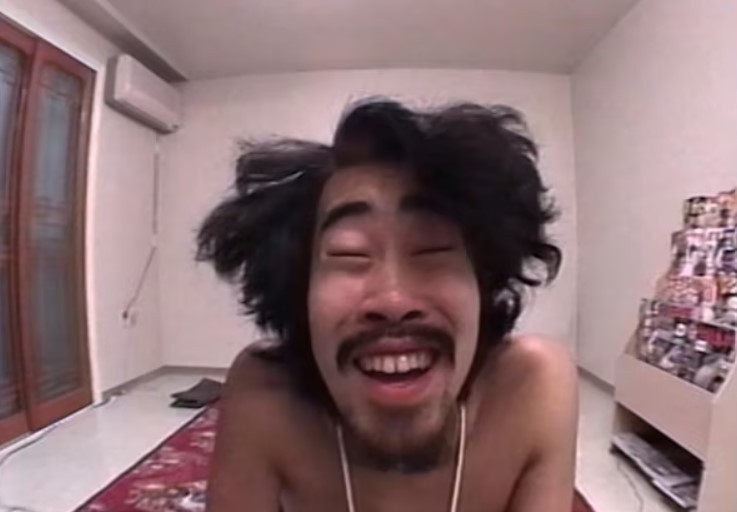29/04/2024
29/04/2024
TOKYO, April 29, (AP): Naked and frail, a shaggy-haired man films himself as he endures solitude in a tiny room for months, and months more. “The Contestant,” directed by Clair Titley, explores the story behind the late 1990s hit reality TV show from Japan, “A Life in Prizes,” in which a comedian nicknamed Nasubi is forced to survive on whatever he can redeem from mail-in coupons, as he is denied contact with the outside world.

The film premiered at the Toronto International Film Festival in 2023 and will stream on Hulu from May 2. Tomoaki Hamatsu - whose nickname “Nasubi,” meaning eggplant in Japanese, refers jokingly to his long chin - never manages to clothe himself and remains naked throughout the show. But he dances to celebrate the things he does obtain, especially food, even if it’s just a pot of kimchi. Canada’s National Post, in a review of Titley’s documentary, described the TV show as “’The Truman Show’ meets ‘OldBoy,’” referring to the 1998 American film starring Jim Carrey about a man who unwittingly stars in a reality TV show about his own life and the 2003 Cannes-winning Korean film about an imprisoned man.
The British director Titley said she chanced upon the reality show and reached out to Nasubi because she felt no one had ever told his side of the story. “I felt that they were kind of dismissive and even derogatory to an extent about, you know, look at those crazy Japanese. And I really wanted to know Nasubi’s story. I really wanted to know what had happened to him, why he’d stayed in there,” she said in a recent Zoom interview with The Associated Press. What makes her documentary more than a just-for-laughs, big-in- Japan satire are the interviews Titley conducts with Hamatsu’s mother, sister and friend, who express outrage, sorrow, pride and a mix of other emotions as the show grew into a prime-time hit. They said they felt sorry for what he endured, including his nudity. The film also explores Hamatsu’s childhood experience of being bullied because of his long chin and how he turned to laughter to protect himself.
Solitude
Hamatsu says the hardest part of the show was the solitude, although being without clothing - and very little food - for a year and three months also took a toll on him. The comedian was moved to tears when he received a standing ovation at a New York screening of the documentary. “I feel I was able to relay a positive message through the documentary,” he said. “The Contestant” raises serious questions about how far society might go for entertainment, and the big audiences and money it represents. The show’s producer said in the documentary he just wanted to “capture the moment” and did not mention any reservations about producing the show.
“I think to an extent we are all complicit in these narratives. I think that’s something to be aware of. It’s very easy to stand back and look at all of this, and sort of think, ‘Oh, look at what those producers did.’ But, you know, as viewers we need to take some responsibility,” Titley said. The film explores the various emotions of being trapped in different ways, including in relationships, hardships or just feelings of meaninglessness. Hamatsu is from Fukushima in northeastern Japan, which was hit by the March 2011 triple disaster, when a giant tsunami followed a 9.0 magnitude quake and devastated the coastline, setting off the world’s worst nuclear disaster since Chernobyl. Hamatsu, who still works as an actor, also devotes his time to the reconstruction of Fukushima and raising awareness about the region. “I want everyone to know the people of Fukushima are working hard,” he said.
“Life is gradually returning to what used to be in the exclusion zones. Of course, I realize the road to decommissioning the nuclear plants is still a long battle. But I would like people to know the Fukushima of today, feel hope by visiting Fukushima and watch Fukushima rebuild.” In a vindication of sorts at the end of the documentary, Hamatsu becomes a climber and conquers Mount Everest, a feat he dedicates to Fukushima. Many people think the famous show 25 years ago was the high point of Hamatsu’s life, since he is not on TV much anymore, he said. “But it’s just the opposite. That was the worst point in my life. I overcame that. And now I am free to do what I want.”


